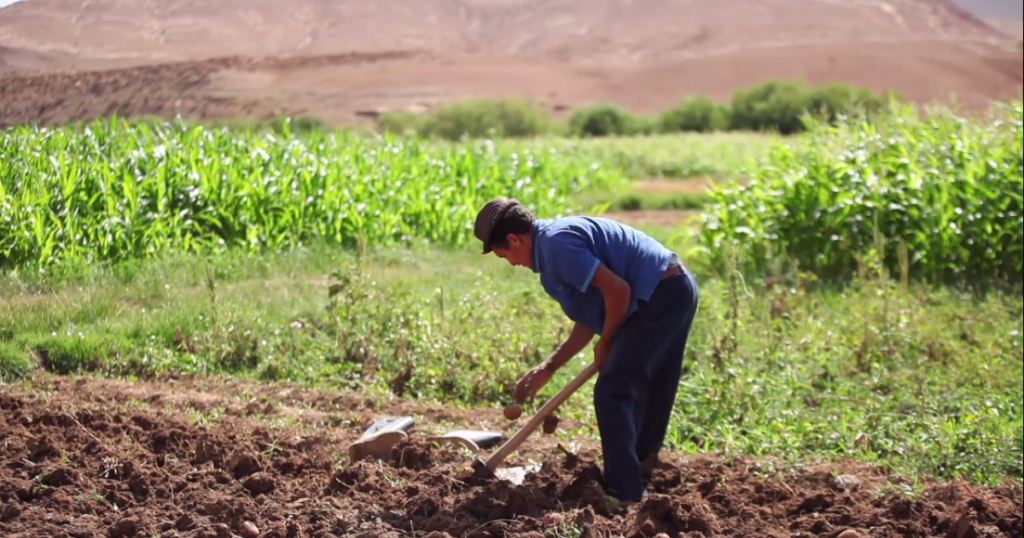Agriculture in Morocco plays a vital role in the country’s economy and provides employment for a large portion of the population. The country’s climate, geography, and water availability influence the types and methods of farming practiced.
Here’s a breakdown of the main modes of agriculture in Morocco:
1. Traditional/Subsistence Agriculture
- Practiced In: Mountainous regions (Atlas), rural villages
- Characteristics:
- Small-scale, family-owned farms
- Low use of machinery and modern inputs
- Relies heavily on rainfall (rain-fed farming)
- Main Crops: Cereals (wheat, barley), legumes, olives, vegetables
- Livestock: Sheep, goats, donkeys, cows
2. Irrigated Agriculture
- Practiced In: Oases, river valleys (e.g., Draa Valley, Souss region)
- Water Sources: Rivers, underground wells, dams (like Al Massira Dam)
- Main Crops:
- Fruits: Citrus (oranges, clementines), melons, grapes
- Vegetables: Tomatoes, onions, peppers
- Cash Crops: Sugar beet, cotton, flowers (for export)
3. Rain-fed (Dryland) Farming
- Location: North and central plains (e.g., Chaouia, Saïss)
- Crops:
- Wheat and barley dominate
- Olive trees and almonds in drier areas
- Challenges: Vulnerable to drought due to reliance on seasonal rainfall
4. Commercial/Export-Oriented Agriculture
- Focus Areas: Atlantic coast and inland plains
- Target Markets: Europe, Middle East, and North Africa
- Main Products for Export:
- Citrus fruits (oranges, lemons)
- Olive oil
- Tomatoes and other vegetables
- Wine and grapes
- Uses: Modern techniques like greenhouses, drip irrigation, fertilizers
5. Organic & Sustainable Farming (Emerging Sector)
- Trend: Growing interest in organic agriculture, especially in regions like Essaouira and Agadir
- Crops: Argan, saffron, dates, medicinal herbs
- Focus: Eco-farming, local cooperatives (especially women’s argan oil co-ops)
6. Livestock & Pastoralism
- Common Livestock: Sheep, goats, cattle, camels (in southern areas)
- Practices:
- Nomadic or semi-nomadic herding in arid/semi-arid areas
- Integrated into mixed farming in other regions
7. Government-Driven Modern Agriculture (Green Morocco Plan)
- Launched: 2008
- Goals:
- Boost production and export
- Modernize agriculture with tech and irrigation
- Support smallholders and agribusiness
- Now Evolved Into: “Generation Green 2020-2030”
Summary Table
| Mode of Agriculture | Key Features | Typical Crops/Livestock |
|---|---|---|
| Traditional Farming | Small scale, low-tech, rain-fed | Wheat, barley, olives, legumes |
| Irrigated Farming | Uses dams, wells, canals | Citrus, vegetables, sugar beet |
| Rain-fed (Dryland) | Depends on rainfall | Grains, olives, almonds |
| Commercial/Export Farming | Modern tech, greenhouse, large scale | Tomatoes, citrus, olive oil |
| Organic & Sustainable | Eco-friendly, small co-ops | Argan, saffron, herbs |
| Livestock & Pastoralism | Nomadic or integrated | Sheep, goats, cattle, camels |


